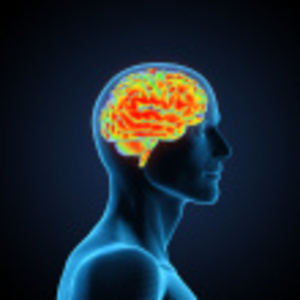Despite efforts to dispel the common myths and stigma associated with epilepsy, many otherwise-educated people believe that it is a form of psychosis or other psychiatric illness. This very common misconception ultimately results from two factors: epilepsy can mimic the symptoms of mental illness, and the effects of prolonged seizures can create emotional disturbances.
When uneducated people talk about seizures as a form or symptom of mental illness, they often indicate a belief that epilepsy is a psychosomatic condition– that is, brought on by a mental, rather than neurological, disruption. If a skeptic claims that epilepsy is “all in the patient’s head”, he is, in a way, right: epilepsy is a disorder involving the brain and central nervous system– not, for example, the kidneys. However, there are vast differences between a neurological illness and a mental disturbance.
While mental illnesses like depression, schizophrenia, and bipolar disorder are often caused by chemical imbalances, neurological illnesses like epilepsy are caused by abnormal electrical impulses. Abnormal production of a key neurotransmitter is believed to lead to mental illness, but seizures are actually triggered by the excessive discharge of neurons themselves. The chemical imbalances that cause mental illness are completely independent of the traumas and abnormalities that cause epilepsy.
However, epilepsy is often mistaken for a form of mental illness by a few factors that pertain to epilepsy symptoms and treament. Contrary to very popular misconceptions, seizures do not always involve a person abruptly losing consciousness and convulsing on the floor. This type of full seizure, a grand-mal seizure, is only one variety. Other forms of epilepsy, including complex partial and petit-mal seizures, can closely mimic the symptoms of mental illness.
For example, complex-partial seizures often result in the person maintaining near-full consciousness, but becoming profoundly confused or disoriented. Sometimes, the person may wander around, engage in an embarrassing behavior, or display a sudden lack of recognition for otherwise-familiar people. People with complex-partial seizures might suddenly clap their hands, make strange noises, repeat a word several times, or even publicly disrobe.
If an onlooker is uneducated in the symptoms of this form of epilepsy, he or she is likely to witness these symptoms and assume that the patient is mentally ill and experiencing an episode of psychosis. A person with complex-partial seizures may appear to be insane or drugged, and, despite reassurances from the medical community, they will face judgment from people unfamiliar with this form of epilepsy.
People with epilepsy may also suffer from emotional disturbances that result from prolonged seizures or disabling conditions. Those who are so plagued by constant or near-constant seizure activity may have their activities severely limited by their conditions. As a result, severe epilepsy might be connected to conditions like depression and anxiety; however, these are situational issues independent of the biology of epilepsy itself.
Another contributing factor to the misconception may relate to the side-effects of common anti-seizure medications. Most anticonvulsants literally depress the entire body, causing emotional upset that may be either temporary or prolonged. Owing to this effect, it is likely that a person with epilepsy will suffer some degree of depression while undergoing treatment, but this too is an isolated symptom.
A patient suffering from epilepsy might have depression or another mental illness, and some forms of seizures may mimic the symptoms of psychosis. However, epilepsy itself is a neurological illness, not a mental illness– it is the result of the overfiring of neurons, rather than the result of a chemical imbalance.
The more information about epilepsy advocacy, visit The Epilepsy Foundation at epilepsyfoundation.org.



